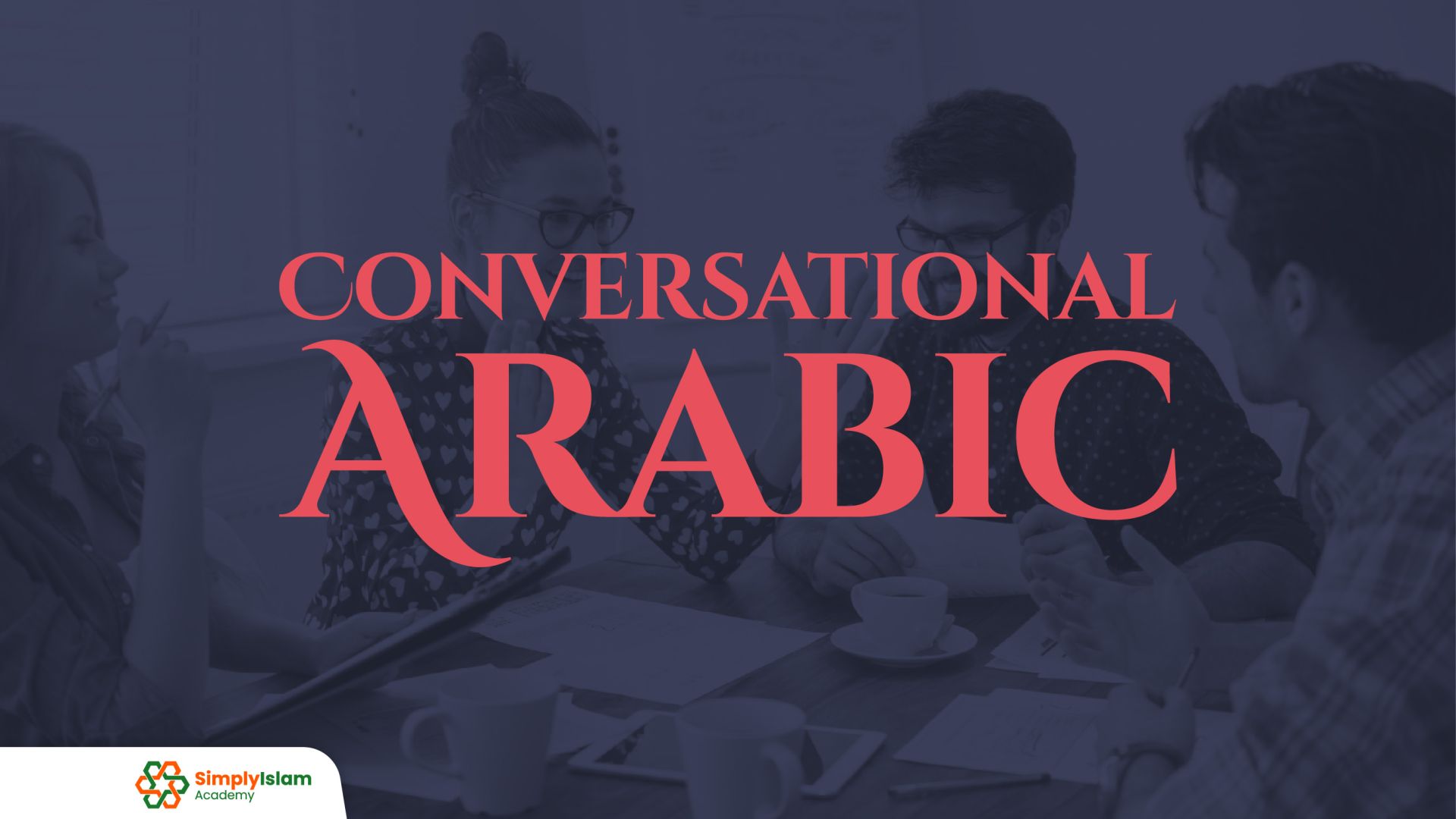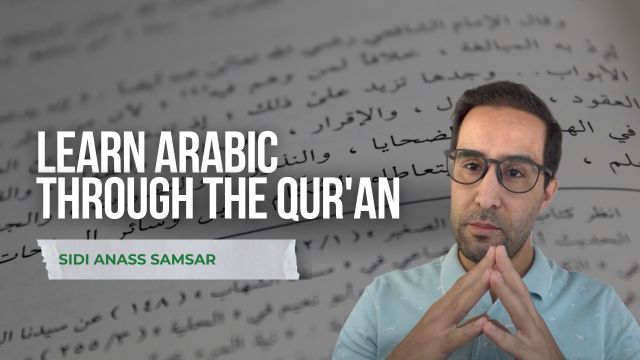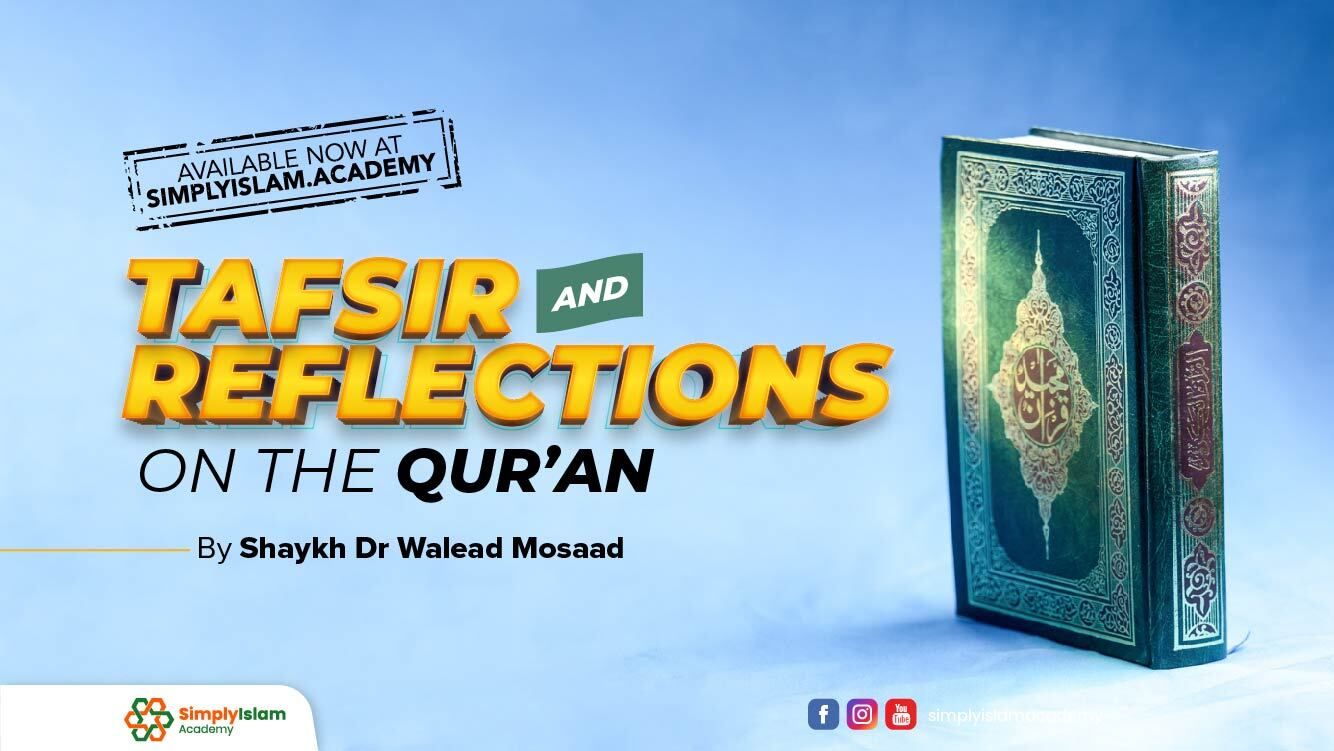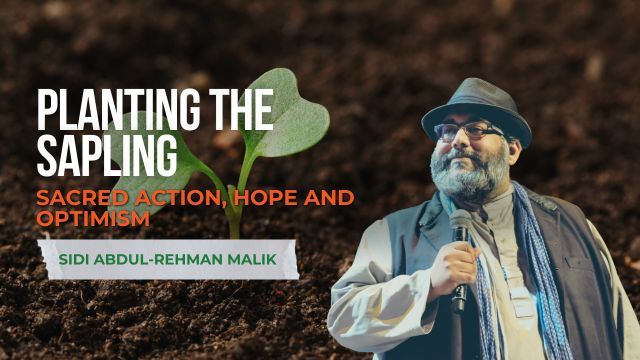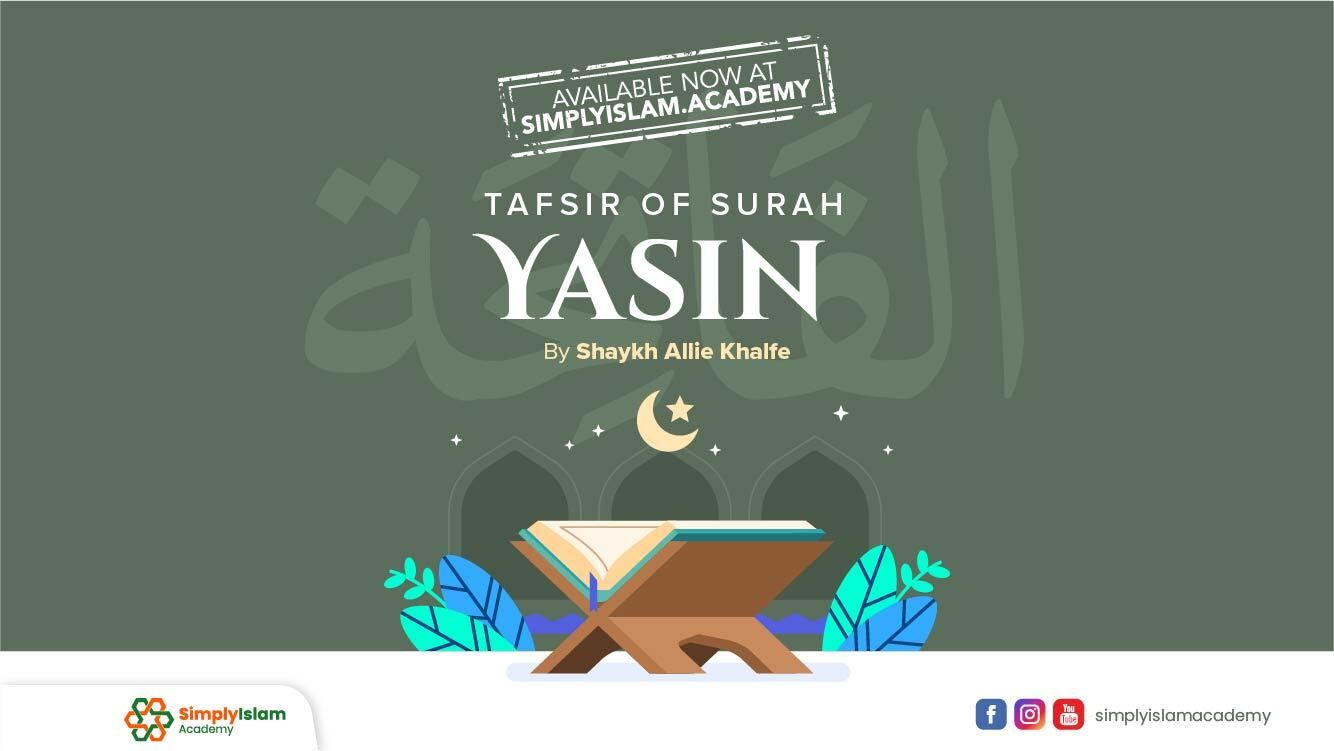-
Self-Development
Importance of seeking Knowledge in Islam
-
Lily Syahirah Ramlan
-
03 Nov 2021
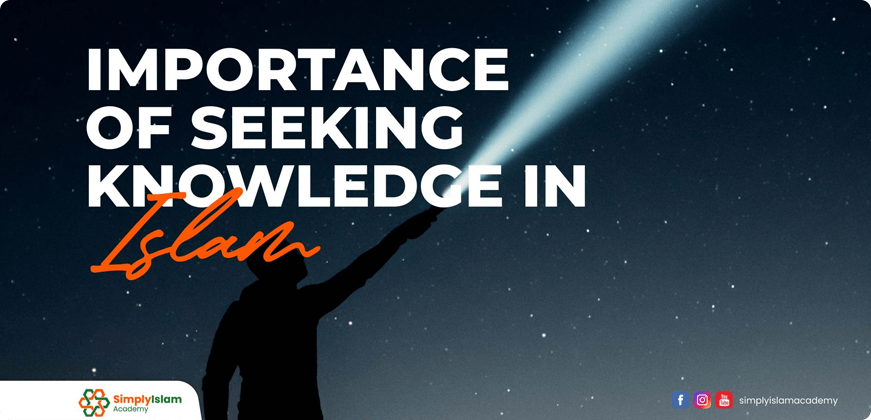
As the old saying goes, ‘knowledge is power’. Since the first revelation from Allah the Almighty to our beloved Prophet Muhammad ﷺ, the Quran mentions great importance of seeking knowledge in Islam. Every Muslim is obligated to seek knowledge regardless of their gender, age, ethnicity, social status and more. We all have equal rights to education and seeking knowledge to improve and empower ourselves as liberating individuals of the Ummah.
Because of Islam’s focus on the significance of seeking knowledge, exemplary role models of Islam during the Islamic Golden Age like Ibn Sina, Ibn Batutta, al-Khawarizmi, Al-Jazari, and the likes were born to contribute and expand various branches of knowledge to enlighten the whole world, SubhanAllah. They were some of the pioneers of complex and advanced fields of knowledge like medicine, astronomy, cartography, psychology and more.
Definition of Knowledge in Islam

Before we get to the whys and hows of seeking knowledge, let us first unravel the Definition of seeking knowledge in Islam, what it means from other Muslim scholars’ perspective.
The Arabic word ‘ilm often translated as “knowledge” implies “knowing about something”.
According to one of the prominent figures of Islam, Imam Al-Ghazali, he defines knowledge as ‘the attainment of actual description or representation in the heart.’
Based on the view of Prof Syed Naquib al-Attas, knowledge is divided into two based on the manner of its attainment:
Husul: The arrival of meaning and description of a thing to the soul.
Wusul: The arrival of the soul at the right meaning and description of a meaning that is in fact the subject of knowledge.
Ibn Sina, an extraordinary Muslim scholar defines knowledge as ‘the understanding or discernment of something, which is the reality reflecting itself in the intelligent which has been constantly observing what it is.’ In principle, reality is external from the intelligent.
Now that we’ve gotten a good grasp on the concept of knowledge in Islam, let us explicate the Quranic verses and hadiths on seeking knowledge to further understand how essential it is to educate ourselves:
Quranic Verses on Seeking Knowledge

Aside from the very famous surah on seeking knowledge, Surah al-’Alaq, where the whole chapter entails the urgency for all Muslims to read or acquire knowledge, there are also other parts of the Quran and hadiths which mention the vitality of seeking knowledge:
يَرْفَعِ اللَّهُ الَّذِينَ آمَنُوا مِنكُمْ وَالَّذِينَ أُوتُوا الْعِلْمَ دَرَجَاتٍ ۚ وَاللَّهُ بِمَا تَعْمَلُونَ خَبِيرٌ
God will raise up, by many degrees, those of you who believe and those who have been given knowledge: He is fully aware of what you do. [Qur’an, 58:11]
Allah the Glorious Promises that He WILL raise the status of those who are given knowledge. It is evident that the level of the knowledgeable is vastly higher than those who are ignorant.
وَسَخَّرَ لَكُم مَّا فِي السَّمَاوَاتِ وَمَا فِي الْأَرْضِ جَمِيعًا مِّنْهُ ۚ إِنَّ فِي ذَٰلِكَ لَآيَاتٍ لِّقَوْمٍ يَتَفَكَّرُونَ
He has subjected all that is in the heavens and the earth for your benefit, as a gift from Him. There truly are signs in this for those who reflect. [Qur’an, 45:13]
إِنَّمَا يَخْشَى اللَّهَ مِنْ عِبَادِهِ الْعُلَمَاءُ ۗ إِنَّ اللَّهَ عَزِيزٌ غَفُورٌ
At is those of His servants who have knowledge who stand in true awe of God. God is almighty, most forgiving. [Qur’an, 35:28]
Hadith on Seeking Knowledge
If you notice, in many parts of the Quran Allah mentions that those who contemplate and reflect, especially when utilising their intellectual faculty, will find the Signs that the ignorant don’t. Keep on learning and discover the wonders of the world, and within those beauties will you find the great Signs of Allah the Almighty. By seeking knowledge, you will expand your worldview, make you more mature and wiser, InshaAllah.
“Seeking knowledge is a duty upon every Muslim (and Muslimah)” [Prophet Muhammad ﷺ]
One of the biggest struggles Muslims come across today is the blatant technological distraction which lures us to waste our time on entertainment rather than seeking knowledge about Islam!
The hadith on seeking knowledge above is one of the most common hadiths we often come across at least once in our lifetime. This hadith encapsulates the meaning of our responsibilities as Muslims, which is to seek knowledge whenever we can.
“Whoever takes a path in search of knowledge, Allah will cause him to walk in one of the paths to Paradise. Indeed the angels will lower their wings in great pleasure with the one who seeks knowledge.” [Prophet Muhammad ﷺ]
“If Allah intends goodness for a person, He gives him the understanding of the religion.” [Prophet Muhammad ﷺ]
Last but not least, here are some of the hadiths on the benefits of seeking knowledge. It is mentioned in the hadith above that Allah the Glorious will open a path to Paradise for those who pursue knowledge, and if Allah intends goodness on a Muslim, He will endow that person with the understanding of Islam.
In retrospect, we can deduce that Allah the Merciful indeed encourages all to tread the path of knowledge and will reward us for doing so. So, get ready to embark on a spiritual journey of seeking knowledge, and see the difference in the new you!
Try Our Best-Selling Courses
The Three Divisions on the Concept of Knowledge in Islam

Generally, there are many branches of knowledge, but what does Islam say about the division and integration of knowledge in Islam? According to Ahmad Tijani and Muhamad Zahiri (2013), there are three categories of knowledge according to the Qur’an (62:2 and 96:1-5) that forms a strong foundation of the integration of knowledge:
1. Religious Knowledge
The essence of the Islamic religious knowledge and experience is tawhid. It is the main foundation of the Islamic intellectual discourse (Bakar, 2008). This makes the Islamic intellectual tradition a tawhidic epistemology.
2. Pure Sciences
A science depending on deductions from demonstrated truths, such as mathematics or logic, or studied without regard to practical applications. This science is needed to enable Muslims have a better understanding of religious or sacred knowledge.
3. Natural Sciences
A branch of science that deals with the physical world. Allah the Glorious has mentioned in many parts of the Quran that capture the explorations of natural phenomena (Mehdi Golshani, n.d.). The exploration of nature should be made positive and ultimately, it should be a reflection about the glory and excellence of Allah the Almighty.
The Two Types of Knowledge in Islam

1. Individually Obligatory Knowledge (farḍ ʿayn)
This type of knowledge refers to the fundamentals of Islamic beliefs that every Muslim is obligated to know. Seeking this knowledge is a must for each and every Muslim. The ruling for not acquiring such knowledge is sinful and Muslims are held accountable for the ignorance in this type of knowledge. For instance, one must know the pillars of Islam and Iman, the fundamentals of worship, fiqh rulings of certain deeds and so on.
2. Communally Obligatory Knowledge (farḍ kifâyah)
This type of knowledge is not an obligation for every individual, but rather falls upon a “sufficient number” within the community as a whole. Hence, if a group of individuals in the community acquire this kind of knowledge, other individuals are exempted from this duty. The ruling for this type of knowledge is sunnah mu’akkadah. For example, pursuing Law or medicine, and other professions imperative for the welfare of society.
Why should we seek knowledge from the cradle to the grave
Why should we seek knowledge from the cradle to the grave
Why Should We Seek Knowledge From The Cradle To The Grave
The concept of seeking knowledge isn’t new in Islam, as it is a tradition in many civilisations, understanding that knowledge is indeed power, and that many nations in the past exchanged views and ideas.
1.Knowledge Entails Benefits And Rewards
Just like any other good deeds and spiritual acts that Muslims do, seeking knowledge does reap benefits and rewards for those who have good intention in doing so.
The path to Paradise is eased
Sayydiatina ‘Aisha said she heard God’s messenger say that God revealed
to him, “ If anyone follows a path in search of knowledge, I shall make
easy for him the road to paradise; and if I deprive anyone of his eyes,
I shall guarantee paradise to him in return for them. Superiority in
knowledge is better than superiority in worship, and the basis of the
religion is abstinence.” Baihaqi transmitted it in Shu'ab al-iman. [Mishkat al Masabih]
It is clear from this hadith that the one who seeks knowledge has an easier path to enter Jannah, Insha’Allah.
Their ranks are raised in the sight of Allah
يَرْفَعِ ٱللَّهُ ٱلَّذِينَ ءَامَنُوا۟ مِنكُمْ وَٱلَّذِينَ أُوتُوا۟ ٱلْعِلْمَ دَرَجَـٰتٍۢ ۚ وَٱللَّهُ بِمَا تَعْمَلُونَ خَبِيرٌۭ
"God will raise the status of those of you who believe and those who have been given knowledge by several degrees. He is fully aware of what you do." [Quran 58:11]
Imagine having your status elevated because of the knowledge your pursue! May this be a source of motivation for us to keep seeking knowledge for a better Hereafter, Insha’Allah.
Imagine having your status elevated because of the knowledge your pursue! May this be a source of motivation for us to keep seeking knowledge for a better Hereafter, Insha’Allah.
Allah wishes good for a person with knowledge
"If Allah intends good for someone, He gives him understanding of the religion." [Sahih al-Bukhari 71, Sahih Muslim 1037]
This hadith supports the point: true knowledge, especially religious knowledge, is a sign of Allah’s Divine Favour upon his servant.
The doors of other virtues are opened
قُلْ هَلْ يَسْتَوِي ٱلَّذِينَ يَعْلَمُونَ وَٱلَّذِينَ لَا يَعْلَمُونَ ۗ
"Say, ‘Can those who know be equal to those who do not know?’" [Qur’an 39:9]
This verse means that knowledge elevates a Muslim’s status and opens the path to deeper understanding, good action, and taqwa..
2.Knowledge is significantly important
Many Muslims know the importance of seeking knowledge in Islam, but not many would know HOW is it important and its impact in one’s daily life.
Knowledge is a prerequisite to the acts of worship
Without proper knowledge, it is not possible to achieve perfection or strive for Ihsan in our spiritual acts that we do like prayer, fasting and more.
This is because in every spiritual act of worship, there is a vast sea of knowledge waiting to be discovered. The virtues of performing these acts, the deep meaning behind these spiritual practices and even the content of the ibadah!
For instance, to strive for the most perfect form of salah, one must understand what is being recited in prayer from Basmalah to Salaam.
Knowledge helps us to comprehend the present
In today’s world filled with information overload and confusing ideologies, having Islamic knowledge is crurcial. It helps us filter what aligns with our faith and what does not.
Whether it’s navigating modern issues like finance, relationships, or ethics, Islamic knowledge gives us a framework to make informed decisions based on Divine Wisdom, not fleeting trends.
3. Knowledge is compulsory
This is one of the most important reasons why we should seek knowledge as Muslims; because it is an obligation. A duty upon every Muslim, that sometimes we ourselves take for granted.
It was narrated from Anas bin Malik that the Messenger of Allah (ﷺ) said:
"Seeking knowledge is a duty upon every Muslim” [Sunan Ibn Majah]
The 5 Tips to Seek Knowledge in Islam:
Of course, to seek knowledge is to be familiar with the etiquette, preparations and the correct methods. Before you begin your journey of seeking knowledge, you should bear a few things in mind:

1. Rectify your intentions
Just like any other deed, you have to determine the reasons for doing something. Why do you want to seek knowledge? Are you mentally and spiritually ready to embark on your adventure? What drives you to start? These are all questions you should have answers to. If it helps, you could even jot down your intentions in your personal journal to keep your intentions in check every day. The last thing you need is to corrupt your intentions by showing off the knowledge you possess!
"Actions are but by intention and every man shall have but that which he intended. Thus he whose migration was for Allah and His messenger, his migration was for Allah and His messenger, and he whose migration was to achieve some worldly benefit or to take some woman in marriage, his migration was for that for which he migrated." [Prophet Muhammad ﷺ]
2. Choose Your Teachers Wisely
Just like any other deed, you have to determine the reasons for doing something. Why do you want to seek knowledge? Are you mentally and spiritually ready to embark on your adventure? What drives you to start? These are all questions you should have answers to. If it helps, you could even jot down your intentions in your personal journal to keep your intentions in check every day. The last thing you need is to corrupt your intentions by showing off the knowledge you possess!
SimplyIslam Academy offers Islamic courses online, from Hadith, Fiqh, Sirah, Tasawwuf and more. Our Muslim scholars are selected based on their credebility and exceptional qualifications, and our platform is deeply rooted in the way of Ahlus Sunnah wal Jama’ah. So, if you would like to start your journey towards Islamic knowledge, our platform can be a great stepping stone for you to expand your Islamic worldview, InshaAllah.
To Learn Islam online,sign up and become a member at: www.simplyislam.academy
To Learn Islam online,sign up and become a member at: www.simplyislam.academy
3. Attend Classes at Your Local Mosque
If you are allowed to go to the mosque, it is an incredible opportunity for you to seek knowledge of Islam face-to-face with the instructor. This will give you a better learning experience as you could ask whatever questions that come to your mind and interact with your instructor and other participants.
Depending on your local mosques, they might have fixed schedules every day when lectures will be conducted. So, perhaps if lectures are conducted after Maghrib, you could stay there and perform Isha’ congregational prayer as well! As they say, kill two birds with one stone.
Here are some etiquette to keep in mind when you’re attending classes or lectures:
- Ask questions!Leave early so you can arrive early/on time to the mosque
- Put your cell phone on silent (or turn if off) to prevent disruptions
- Sit as close as you can to the instructor
- Jot down any notes for memory retention
4. Make Du’a Before you Study
Just like before you eat, before you sleep, there is also a du’a for you to recite before you seek knowledge. These du’as may be simple, but when you truly believe in them and recite with a sincere heart, it does wonders for your intellectual faculties! You will find that you retain information much easier, understand concepts much more easily and utilise time effectively, InshaAllah.
اللَّهُمَّ إِنِّي أَعُوذُ بِكَ مِنْ عِلْمٍ لَا يَنْفَعُ وَمِنْ قَلْبٍ لَا يَخْشَعُ وَمِنْ نَفْسٍ لَا تَشْبَعُ وَمِنْ دَعْوَةٍ لَا يُسْتَجَابُ لَهَا
“O Allah, I seek refuge in You from knowledge which does not benefit, from a heart that does not entertain the fear (of Allah), from a soul that is not satisfied and the supplication that is not answered.”
َللَّهُمَّ اَكْرِمْنْيْ بِنُوْرِ الْفَهْمِ وَ خَرَّجَنِيْ مِنْ ظُلُمَاتِ الْوَهْمِ وَ افْتَحْ عَلَيْنَا اَبْوَابَ عِلْمَكَ، وَ انْشُرْ
عَلَيْنَا خُزَّانَ مَعْرِفَتِكَ يَا اَرْحَمَ الرَّاحِمِيْنَ،
اَللَّهُمَّ وَفِّقْنِيْ فِىْ الْمُطَالَعَةِ بِحَلِّ جَمِيْعِ مُشْكِلاَتِ الْمَسَآئِلِ مِنَ الْكُتُبِ بِرَحْمَتِكَ يَا اَرْحَمَ الرَّاحِمِيْنَ
“Oh Allah, honor me by the light of understanding and take me out from the darkness of doubt and open upon us the doors of your knowledge and open upon us the treasure of your recognition, oh the best of the Merciful ones. Oh Allah, and give me Tawfeeq to study and solve all the difficult problems through books. By your mercy, oh the best of the merciful ones.”
رَبِّ اشْرَحْ لِي صَدْرِي وَيَسِّرْ لِي أَمْرِي وَاحْلُلْ عُقْدَةً مِّن لِّسَانِي يَفْقَهُوا قَوْلِي
“O my Sustainer! Open up my heart and make my task easy for me, and loosen the knot from my tongue so that they might fully understand my speech.”
5. Seek Knowledge by Reading Islamic Books
Just like the first revelation Allah has descended upon our Blessed Prophet Muhammad ﷺ, we are encouraged to read some insightful Islamic books to enhance our understanding of Islam, and increase our love to our deen, InshaAllah. Here are a few recommendations for you to start with:
- The Great Theft by Dr Khaled Abou El Fadl
- The Broken Chain by Sidi Aftab Malik
- Reclaim Your Heart by Yasmin Mogahed
- Secrets of Divine Love by A. Helwa
We hope that these few tips will help you in your journey to seek Islamic knowledge, and may Allah ease any difficulty that comes your way. Seeking knowledge is indeed a noble deed that all Muslims should try and invest time in, so let’s empower our Ummah through passion and love for Islamic knowledge, InshaAllah.
If you have any other tips for seeking knowledge, do not hesitate to leave a comment down below and share with us what works for you. InshaAllah, let us share the knowledge with others so they could benefit from them.
Conclusion
The importance of seeking knowledge in Islam is undeniable. It’s not just a virtue; it’s a lifelong obligation that shapes every aspect of a Muslim’s life. Knowledge deepens our worship, guides our actions, and empowers us to live with purpose and clarity.
May Allah Almighty grant us beneficial knowledge, and may He bless us with perseverance and steadfastness on this noble path, Ameen.
FAQS
Why is acquiring knowledge important in Islam?
Acquiring knowledge is crucial in Islam because it enables us to understand our duties toward Allah Almighty and humanity. It helps deepening our faith and improving our actions.
What is the reward of seeking knowledge in Islam?
The rewards of seeking knowledge in Islam are immense. The Prophet Muhammad (ﷺ) said, "Whoever travels a path in search of knowledge, Allah will make easy for him a path to Paradise" (Sahih Muslim). Knowledge seekers are honoured by Allah Almighty, as they are considered the heirs of the Prophets and are promised high ranks in this world and the Hereafter.
How to seek knowledge in Islam?
- Begin with Intention: Seek knowledge sincerely to please Allah.
- Choose your teachers wisely: Learn from qualified scholars and authentic sources.
- Attend classes: Whether online or in person, attend classes when you can.
- Practical Application: Act on the knowledge you acquire.
- Consistency: Allocate time daily for study and reflection.
- Pray for Understanding: Ask Allah for wisdom and the ability to implement what you learn.
What does the Qur'an say about knowledge?
The Qur'an emphasizes the importance of knowledge repeatedly:
- "Say, 'Are those who know equal to those who do not know?'" (Qur'an 39:9).
- "And say, 'My Lord, increase me in knowledge'" (Qur'an 20:114).
- “God will raise up, by many degrees, those of you who believe and those who have been given knowledge: He is fully aware of what you do.” [Qur’an, 58:11)
What did Prophet Muhammad say about knowledge?
The Prophet Muhammad (ﷺ) highlighted the virtues of knowledge, saying:
- "Seeking knowledge is an obligation upon every Muslim" (Sunan Ibn Majah).
- "When a person dies, their deeds come to an end except for three: ongoing charity, beneficial knowledge, or a righteous child who prays for them" (Sahih Muslim).
Is seeking knowledge fard (obligatory)?
Yes, seeking knowledge is fard (obligatory) in Islam, particularly knowledge that is essential for fulfilling one's religious duties, such as understanding how to pray, fast, and live according to Islamic teachings. Beyond that, pursuing knowledge to benefit society and humanity is highly encouraged and rewarded.
What is the importance of knowledge according to the Qur'an?
Knowledge is highly esteemed in the Qur'an, as it forms the foundation for understanding Allah's creation and commands. The first revelation to the Prophet Muhammad (ﷺ) begins with the command "Read in the name of your Lord" (Qur'an 96:1), signifying the pivotal role of knowledge in Islam. Moreover, the Qur'an describes those with knowledge as being raised in rank:
- "Allah will raise those who have believed among you and those who were given knowledge, by degrees" (Qur'an 58:11)
Subscribe to Our Newsletter
Stay updated on our free courses, promotions, events and more!
Thank you!
Related Courses
About The Author:
Written By:
Lily Syahirah Ramlan
Lily Syahirah is a Content Writer of SimplyIslam Academy based in Selangor, Malaysia. She recently graduated with a Bachelor's Degree of Education (Teaching English as a Second Language) from International Islamic University Malaysia in 2020. She is actively invovled in public speaking, English language debates, poetry and theatre and loves to express her work through writing. Her love for language arts and imagination has led her to produce, direct and write experimental plays she's passionate about during her degree years. She was also actively invovled as a Master of Ceremony (Emcee) where she hosts minor and major events in IIUM.
About Us
SimplyIslam Academy, a subsidiary of SimplyIslam.sg, is an online Islamic education centre, delivering quality Islamic courses via online since early 2021.
The online Islamic school provides indispensable learning on the various sciences of Islam, covering Qur’an, Hadith, Sirah, Fiqh, Tasawwuf, and others.
The online Islamic school provides indispensable learning on the various sciences of Islam, covering Qur’an, Hadith, Sirah, Fiqh, Tasawwuf, and others.
Follow us
Useful Links:
Thank you!

Learn Anytime, Anywhere
Copyright © SimplyIslam Academy. All Rights Reserved.
Try Our Free Online Islamic Classes Today
Enter your email and we’ll send you notifications on our free classes.
Thank you for subscribing to our newsletter!
Try Our Free Online Islamic Classes Today
Enter your email and we’ll send you notifications on our free classes.
Thank you for subscribing to our newsletter!
